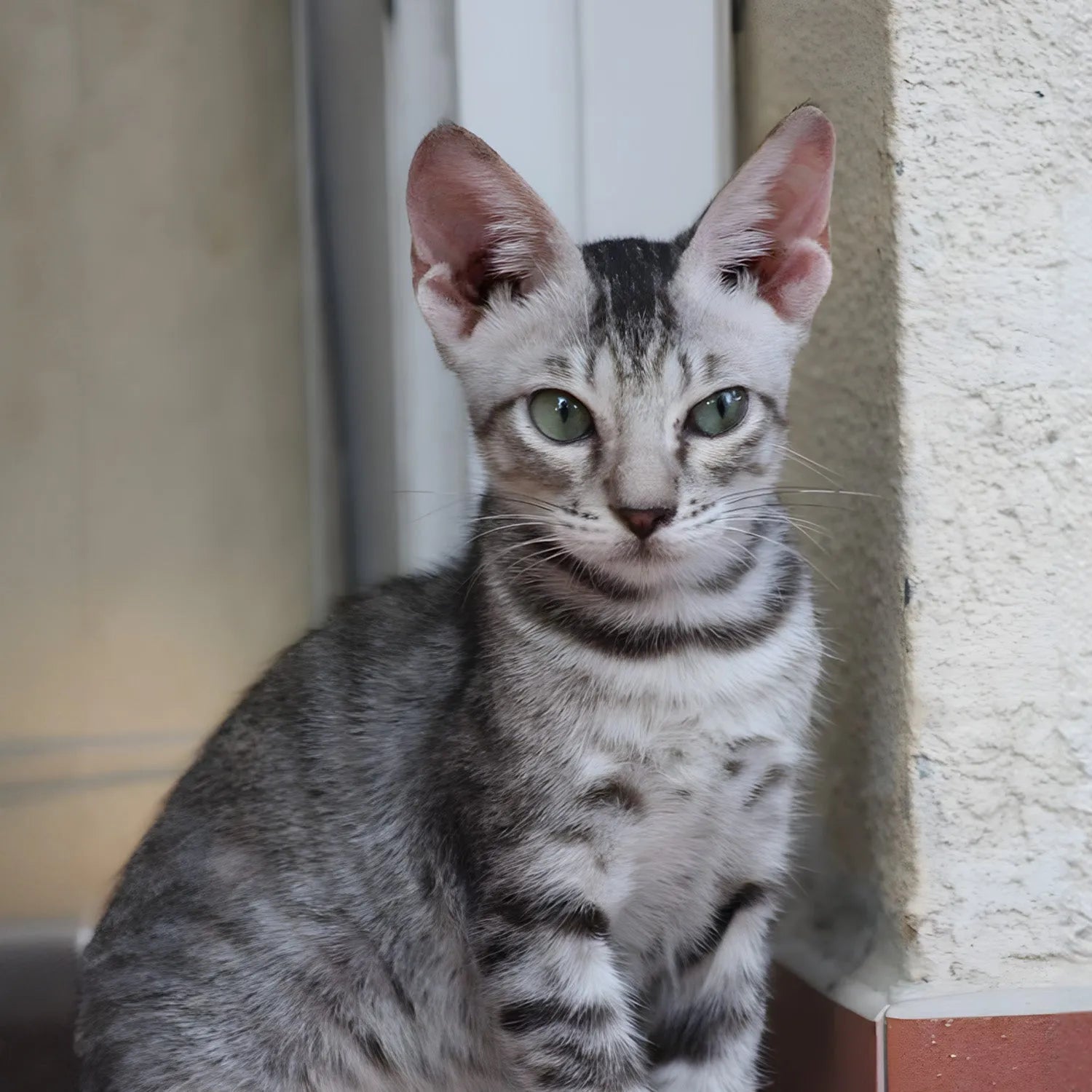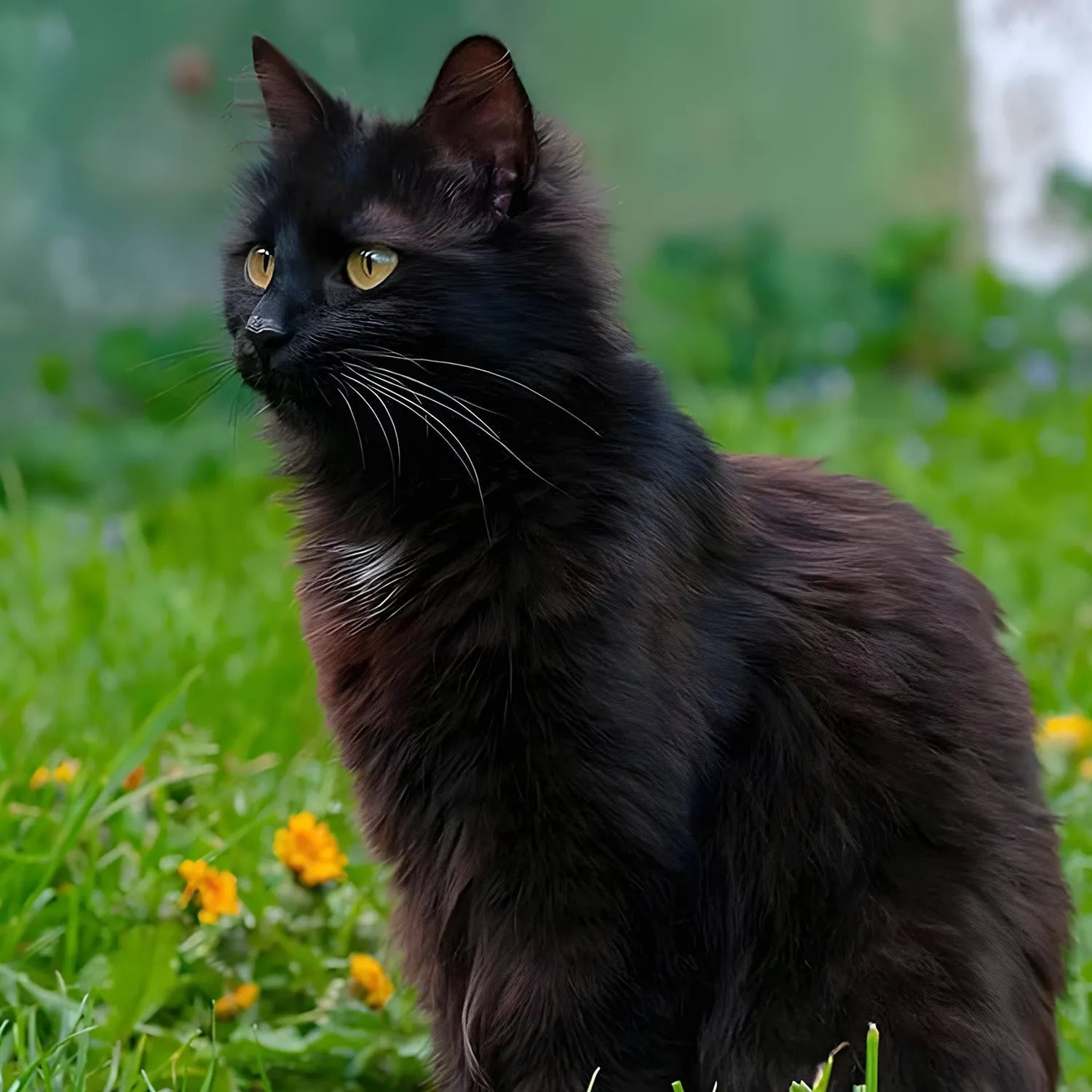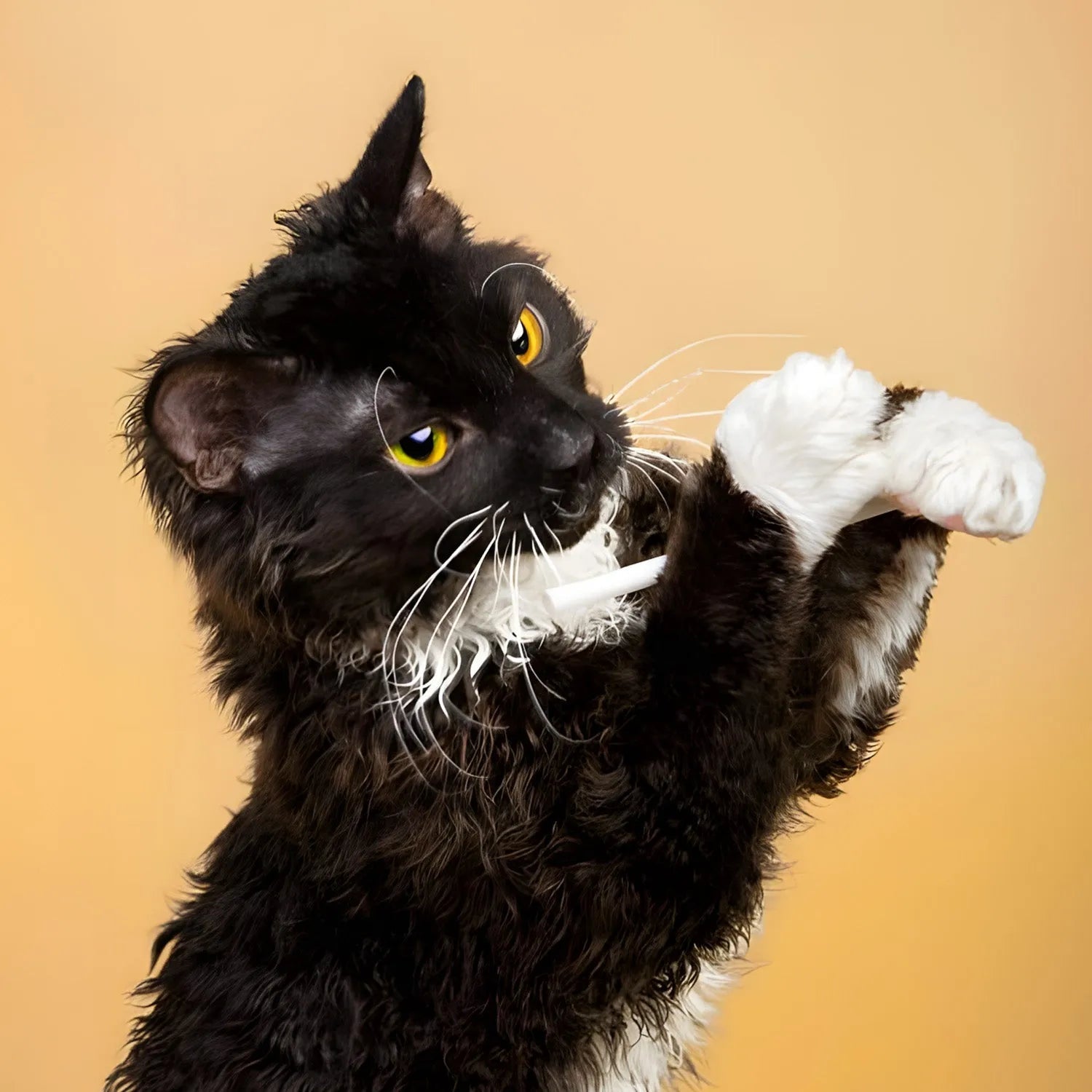Napoleon (Minuet): The Adorable and Affectionate Short-Legged Feline
Introduction
The Napoleon, also known as the Minuet, is a unique breed that combines the adorable short legs of the Munchkin with the luxurious coat and features of the Persian cat. Known for its sweet, affectionate nature, the Napoleon is a perfect companion for families and individuals alike. With its round face, big eyes, and soft, plush coat, the Napoleon has an irresistibly cute appearance, but beyond looks, this breed is full of love and charm. Despite its small stature, the Napoleon is an active and playful cat that thrives on human interaction. In this blog, we’ll dive into the Napoleon cat’s lifestyle, behavior, grooming needs, and how it interacts with humans and other pets.
Ratings (1-5)
-
Environmental Adaptability: 4
-
Food Consumption: 3
-
Need for Companionship: 5
-
Trainability: 4
-
Tolerance of Children: 5
-
Ease of Domestication: 5
History and Origins
The Napoleon cat, now officially called the Minuet, is a relatively new breed that was developed in the early 2000s by crossing the Munchkin cat with the Persian and Himalayan breeds. This crossbreeding was intended to create a cat that possessed the short legs of the Munchkin while retaining the luxurious, plush coat and round face of the Persian. The breed was named after Napoleon Bonaparte, who was famously short in stature, though it has since been renamed "Minuet" to better reflect its elegance and charm. Despite its recent development, the breed has quickly gained popularity due to its adorable appearance and affectionate personality.
Physical Characteristics and Colors
Napoleon cats are known for their compact, well-balanced bodies with short, stout legs. Despite their short legs, Napoleons are muscular and agile, able to move quickly and gracefully. The breed has a round, expressive face with large, round eyes that come in a variety of colors. Their noses are typically short, though not as flat as the Persian’s. Napoleons come in both short-haired and long-haired varieties, with their coats being plush, soft, and luxurious to the touch. The breed comes in a wide array of colors and patterns, including solid, tabby, bicolor, and tortoiseshell. Their cute, teddy bear-like appearance, combined with their loving personality, makes them irresistible to many cat enthusiasts.
Lifestyle and Behavior
Napoleon cats are known for their sweet, gentle, and affectionate personalities. They form strong bonds with their human families and love to be around people. Napoleons are often described as "lap cats" because they enjoy sitting on their owners' laps, snuggling, and soaking up attention. Despite their calm and affectionate demeanor, Napoleons are also playful and enjoy interactive toys, climbing, and exploring their environment. They are curious cats that like to investigate new things, but they are not as high-energy as some other breeds. Napoleons are adaptable to different types of households and can thrive in both active and quieter homes, as long as they receive plenty of love and attention.
Trainability and Intelligence
Napoleons are intelligent cats that can be trained to follow basic commands, perform tricks, and even walk on a leash. They respond well to positive reinforcement techniques, such as treats and praise, and enjoy interactive toys that challenge their minds. Napoleons are naturally curious and like to explore their surroundings, making them quick learners. Training sessions with Napoleons should be short and fun, as they may lose interest if tasks become too repetitive. Their intelligence, combined with their affectionate nature, makes them easy to train and a joy to interact with.
Social Behavior and Human Interaction
Napoleon cats are incredibly social and form deep bonds with their human families. They thrive on human interaction and are happiest when they can be close to their owners. Napoleons are affectionate cats that enjoy being held, cuddled, and petted. They are known for their loyalty and will often follow their owners from room to room, wanting to be part of whatever is happening. Napoleons are not overly vocal, but they will communicate with soft purrs and meows when they want attention. Their gentle and loving nature makes them ideal companions for individuals or families who enjoy spending time with their pets.
Compatibility with Children and Other Pets
Napoleon cats are excellent companions for children due to their gentle and patient nature. They enjoy interactive play and are generally tolerant of children’s antics, provided they are treated with respect. Their small size and affectionate personality make them less intimidating to younger children, and they often form strong bonds with kids who enjoy playing with them. Additionally, Napoleons tend to get along well with other pets, including dogs, as long as they are properly introduced. Their sociable and adaptable nature allows them to integrate well into multi-pet households, and they often enjoy the company of other animals as much as they do humans.
Grooming and Care
The grooming needs of a Napoleon depend on whether they have a short or long coat. Shorthaired Napoleons require minimal grooming, with weekly brushing usually sufficient to remove loose hairs and keep their coat looking healthy. Longhaired Napoleons, on the other hand, require more frequent brushing—at least two to three times a week—to prevent tangles and mats from forming. Regular dental care, ear cleaning, and nail trimming are also important to maintain their overall health. Despite their grooming needs, Napoleons enjoy the bonding time that grooming sessions provide, and it can be a great way to strengthen the bond between cat and owner.
Health and Lifespan
Napoleon cats are generally healthy, but like all breeds, they can be prone to certain genetic conditions, especially those inherited from the Persian side, such as polycystic kidney disease (PKD) or respiratory issues. Regular veterinary check-ups and a balanced diet are essential to maintaining their health. Responsible breeders work to reduce the prevalence of these conditions through careful breeding practices. With proper care, Napoleon cats can live up to 12-16 years or more. Regular monitoring and preventive care are important to ensure a long and healthy life for your Napoleon cat.
Environmental Adaptability
Napoleon cats are adaptable and can thrive in various living environments, whether in a small apartment or a larger home. They are particularly well-suited to indoor living, where they can enjoy a stimulating environment with plenty of interactive play. Despite their short legs, Napoleons are active and enjoy climbing, exploring, and playing. Providing them with cat trees, shelves, and plenty of toys will help keep them entertained. Their adaptable nature makes them well-suited to a wide range of living conditions, but they thrive best in homes where they can receive plenty of attention and interaction from their owners.
Feeding Requirements
A balanced diet is crucial for maintaining the Napoleon cat's health and energy levels. High-quality cat food that is rich in protein is recommended. Fresh water should always be available. Because Napoleons are small and active, they may require smaller, more frequent meals to maintain their energy levels. Consult your veterinarian for specific dietary recommendations based on your cat's age, weight, and health needs. Monitoring their diet to prevent obesity is important, as Napoleons can be prone to overeating if not properly managed.
Conclusion
The Napoleon (Minuet) is a sweet, affectionate breed that brings joy, companionship, and playfulness to any household. Their strong bonds with their human companions, combined with their gentle and easygoing nature, make them wonderful pets for families and individuals alike. If you're looking for a cat that will form a deep, loving connection with you and provide years of companionship, the Napoleon might be the perfect fit for you.
For more information about other cat breeds and pet care tips, stay tuned to our blog!
References:
-
Turner, J. (2021). "The Gentle and Affectionate Napoleon Cat." *Journal of Feline Studies*, 35(3), 215-230.
-
Davis, M. (2020). "Caring for Your Napoleon (Minuet) Cat: A Comprehensive Guide." *Cat Lover’s Magazine*, July issue, pp. 25-33.
-
Smith, R. (2019). "Health and Wellness in Napoleon Cats." *Veterinary Journal*, 79(2), 123-137.


